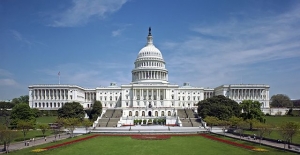
Last month, President Obama signed a bill that had reached his desk. The new statute had only one objective – to improve the federal government’s slow responses to Freedom of Information (FOIA) requests. The intent of the congressional sponsors was clearly to make government more transparent to the people it serves. If that can be accomplished it would be a wonderful thing.
Sadly, too many governmental agencies rely on outdated excuses for their slowness and occasional reluctance to release public information. Most blame the slowness on a lack of resources to process FOIA requests and other information. That excuse is no longer adequate and a number of cities and states have launched bold initiatives designed to remedy that situation and ensure that public information is easily available to citizens.
 As long ago as 2010, the city of Seattle adopted an open data platform that allowed public access to high-value datasets from various departments of the city. The initiative was extremely well received and residents now use the platform for many reasons. It has expanded government services and provides all types of benefits to citizens. The city of Seattle has made more than 400 datasets available and hopes to have 544 datasets available by the end of the year.
As long ago as 2010, the city of Seattle adopted an open data platform that allowed public access to high-value datasets from various departments of the city. The initiative was extremely well received and residents now use the platform for many reasons. It has expanded government services and provides all types of benefits to citizens. The city of Seattle has made more than 400 datasets available and hopes to have 544 datasets available by the end of the year.
In California, state agencies launched similar open data portals – the California Health and Human Services, Department of Justice, and the State Controller’s Office. The portals were so well received that in 2015 the state launched an open data portal that will eventually hold all of California’s public agency data in one centralized location. The state’s Deputy Secretary for Innovation and Accountability says that widespread collaboration from the private, public and academic sectors are opportunities they plan to pursue in the very near future.
Open data portals make information available in real time and without causing a resource drain on agencies. One has to wonder why more governmental entities do not utilize this mode. It would immediately increase efficiency and do away with most FOIA requests that public officials are required to respond to in a timely manner.
The U.S. Department of Justice’s FOIA guidelines state that government must provide an effective system for responding to FOIA requests. With that mandate in mind, it seems reasonable to use open data for as much public information as possible. Cities and states should not wait for legislation that requires them to be more responsive. Visionary leaders will hopefully move quickly.
There are various resources available to assist cities. What Works Cities, launched in April 2015, is a national initiative to help mid-sized cities enhance their use of data. The organization has already assisted more than 35 cities with projects to expand their existing practices. This is just one example of resources that are available to government officials.
Times are changing. New laws are being passed. Government leaders should be encouraged to find ways to provide more transparency and make public information available efficiently.
